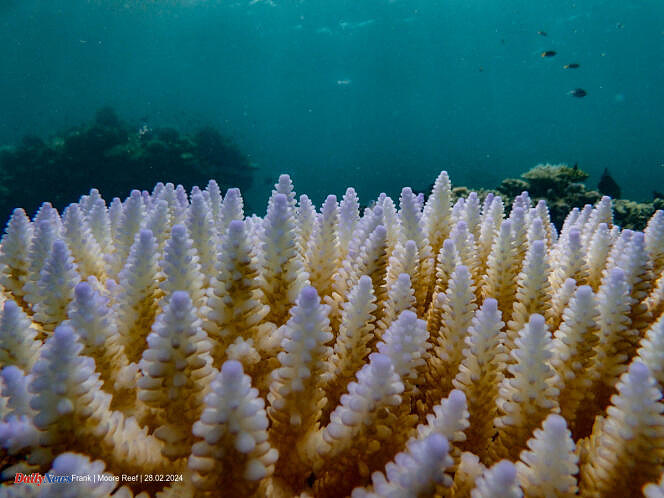For the second time in ten years, the world is currently experiencing a massive episode of coral bleaching due to extreme ocean temperatures, warns the American Oceanic and Atmospheric Observation Agency (NOAA), Monday April 15. “From February 2023 to April 2024, significant coral bleaching was observed in the northern and southern hemispheres of every major ocean basin,” said NOAA's Derek Manzello.
Coral reefs around the world are being affected by significant bleaching linked to rising water temperatures, with portions of the Great Barrier Reef in Australia at risk of disappearing. This phenomenon has been confirmed in all tropical regions, including Florida, the Caribbean, Brazil and the eastern tropical Pacific.
Bleaching, while it can lead to the death of corals, is a reversible dieback phenomenon, with affected corals able to survive if temperatures drop and other stress factors, such as overfishing or pollution, are reduced.
The consequences of this phenomenon are multiple. Bleaching affects ocean ecosystems, but also human populations, impacting their food security and local economies.
The current bleaching episode is the fourth recorded by NOAA since 1985. The previous ones were observed in 1998, 2010 and 2016.












